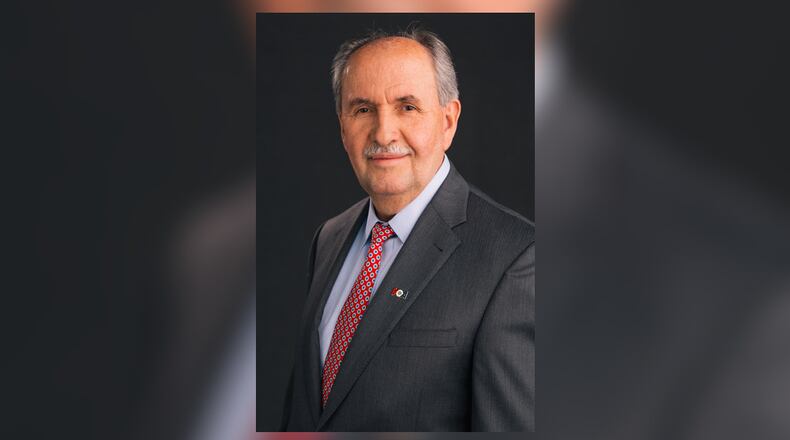“That does not seem to be the case now, in my opinion, but our relations have deteriorated, and these are the worst types of relations that we’ve had with Russia in the last 30 years,” he said.
WATCH: Tom Hanks and Steven Spielberg Talk About the Berlin Wall
He said it’s “safe to assume that Russia will make every effort to interfere as much as possible with our elections here,” and with elections in western European counties through disinformation and propaganda — not unlike the efforts the Soviets made during the Cold War.
“The antidote to misinformation, the fake news out there is good information; the ability to be able to provide accurate and objective information,” Biberaj said. “And any media outlet that bases its reporting on truth and facts is likely to succeed.”
Biberaj will speak from 7 to 9 p.m. today at the National VOA Museum of Broadcasting, 8070 Tylersville Road in West Chester Twp., to commemorate the 30th anniversary of the fall of the Berlin Wall. Travel between East Berlin and West Berlin was permitted on Nov. 9, 1989, and people began knocking away pieces of the wall as cranes and bulldozers pulled down large sections of the wall.
“The demise of communism was the fact that it was a rotten system, and many factors contributed to it,” he said. “The resistance in those countries, economic issues, the desire for freedom and democracy, but I would like to think that the Voice of America was one of the factors which contributed to the demise of communism.”
Biberaj’s talk is called “Democracy’s Secret Sauce: Telling the Truth to Let the World Decide,” and he will talk about VOA’s impact on democracy movements worldwide during the Cold War, and the events leading up to the fall of the wall.
Biberaj will also talk about some of the issues the country faces today — such as Russian interference with U.S. elections — regarding propaganda and disinformation programs from Russia.
“What I see now is an attempt by Russia, particularly under the leadership of (Russia President) Vladimir Putin under the leadership in the last 12 years, making an effort to regain the effort of the prominence of the Soviet Union had during the Cold War.”
RELATED: Messages of peace mark 30 years since fall of Berlin Wall
Biberaj said he agrees with the experts who call Russia a regional power, but said Putin is trying to re-establish the country as a superpower as it was before the 1991 dissolution of the Soviet Union.
Putin has levied military pressure in former Soviet countries, such as in Georgia and Ukraine, and in March 2014 annexed Ukraine’s Crimea Peninsula, which was protested by dozens of world leaders.
“What Putin is trying to do right now is try and re-assert control over at least some of the former Soviet republics which are now independent countries,” Biberaj said.
About the Author

